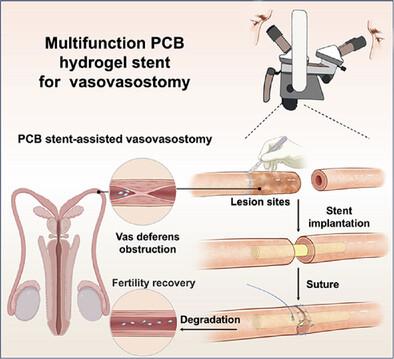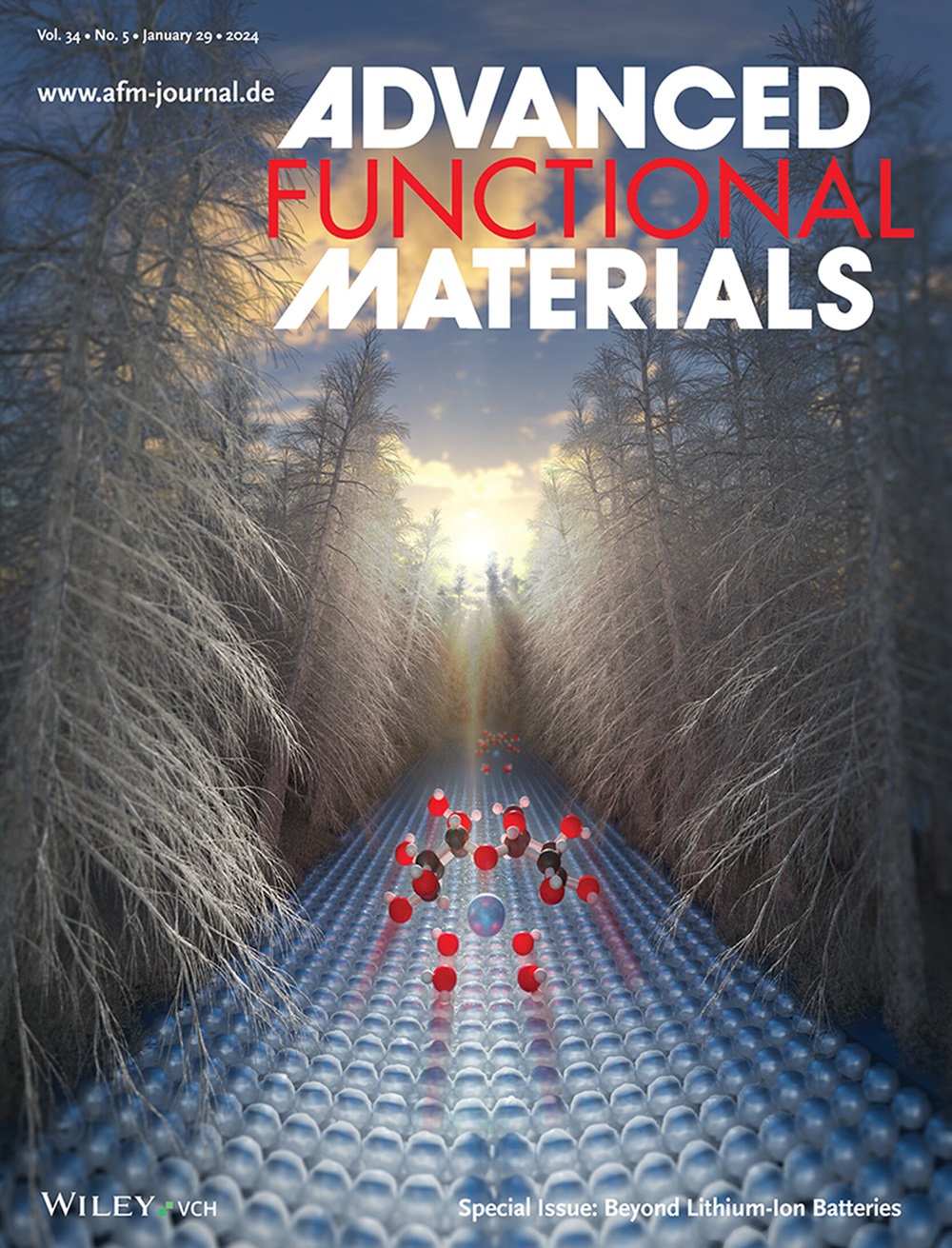Biodegradable Anti-Stenosis Microsurgical Implantable Hydrogel Stent for Efficient Vas Deferens Recanalization
IF 19
1区 材料科学
Q1 CHEMISTRY, MULTIDISCIPLINARY
引用次数: 0
Abstract
Vasovasostomy is a surgical procedure aimed at restoring male fertility, whereas low anastomotic efficiency, delayed healing, and postoperative stenosis are key problems encountered during vas deferens recanalization. Here, a directly coaxial-printable and robust PCB hydrogel stent is designed to enhance the effectiveness of vasovasostomy by photo-polymerizing host–guest complexations between poly(ethylene glycol) methyl ether acrylate and α-cyclodextrin acrylate, using N, N’-bis(acryloyl)cystamine as a degradable crosslinker. The PCB hydrogel exhibits continuous micro-stent fabrication capabilities and exceptional anti-deformation mechanical properties (elastic modulus, fracture strength, and toughness of 1.3 MPa, 2.5 MPa, and 480.4 kJ·m−3, respectively) due to the formation of a polypseudorotaxane threading network integrated with nano-self-assembled structures. Rabbit microsurgical vasovasostomy experiments demonstrate that the time required for tissue anastomosis is reduced by more than half with the support of the PCB hydrogel. Moreover, the stent's excellent resistance to cell adhesion and complete degradability within 28 days in vivo effectively prevents stenosis and promotes healing of the vas deferens, achieving a 100% patency rate. This high-performance PCB stent presents a promising solution for effective vas deferens-related treatment and various other applications.

生物可降解抗狭窄显微外科植入水凝胶支架用于输精管高效再通
输精管造口术是一种旨在恢复男性生育能力的外科手术,然而在输精管再通术中,吻合效率低、愈合延迟和术后狭窄是遇到的关键问题。本文设计了一种可直接同轴打印且坚固耐用的PCB水凝胶支架,通过光聚合聚乙二醇甲基醚丙烯酸酯和α-环糊精丙烯酸酯之间的主-客络合物,以N, N ' -双(丙烯酰)半胺作为可降解的交联剂,来提高血管造口的有效性。由于形成了聚聚聚环氧紫杉烷螺纹网络并集成了纳米自组装结构,该PCB水凝胶具有连续微支架制造能力和优异的抗变形力学性能(弹性模量、断裂强度和韧性分别为1.3 MPa、2.5 MPa和480.4 kJ·m−3)。兔显微外科血管吻合术实验表明,在PCB水凝胶的支持下,组织吻合所需的时间减少了一半以上。此外,该支架具有良好的抗细胞粘附性和体内28天内完全降解性,有效防止了输精管狭窄,促进了输精管的愈合,达到100%的通畅率。这种高性能的PCB支架为有效的输精管相关治疗和各种其他应用提供了一个有前途的解决方案。
本文章由计算机程序翻译,如有差异,请以英文原文为准。
求助全文
约1分钟内获得全文
求助全文
来源期刊

Advanced Functional Materials
工程技术-材料科学:综合
CiteScore
29.50
自引率
4.20%
发文量
2086
审稿时长
2.1 months
期刊介绍:
Firmly established as a top-tier materials science journal, Advanced Functional Materials reports breakthrough research in all aspects of materials science, including nanotechnology, chemistry, physics, and biology every week.
Advanced Functional Materials is known for its rapid and fair peer review, quality content, and high impact, making it the first choice of the international materials science community.
 求助内容:
求助内容: 应助结果提醒方式:
应助结果提醒方式:


